The best new albums this week
The albums that should be on your shopping list

Leslie Winer – When I Hit You– You’ll Feel it (Light In The Attic)
I first discovered Leslie Winer through her collaboration with Jay Glass Dubs, which appeared on Bokeh Versions in 2018. There are those voices who strike with an intonation and lyrical verve so potent they instantly reprogram your ears. The acerbic, unimpressed husk of her delivery felt like the perfect distillation of New York high-fashion in all its hard-nosed, ‘impress-me’ glory. I found myself thinking of the glorious ‘Whatcha Waiting For?’ by Showroom Recordings, a cult B2 cut on Cheap Records unforgettably voiced by Irene Lavina, where the strength of the woman on record gives you a proper dressing down. See also; Dana Bryant. Lavina appeared on just a few records associated with the Vienna music scene, a fleeting performer who left a modest mark, but Winer’s imperious legacy is only now coming into focus. The shroud around her career and work seems a mixture of old, lumpen music industry bias and her own cavalier spirit, but as it pulls back through works like the Bokeh release and this new retrospective compilation on Light In The Attic, we’re treated to a vision of a true artist.
The crux of When I Hit You- You’ll Feel It is Winer’s breakout 1991 album Witch. The album actually only came out in 1993, but in this instance the timing is crucial. When she recorded the heady blend of blunted hip hop beats, dubwise bass, dusty samples and inner monologue spoken word with a cast of musicians within her reach, she was just following her own instincts. Two years later, the trip hop boom was in full swing and her inspiration seemed like a reaction, but like all the best musical approaches in their infancy, there’s a freedom and lack of formula at the heart of ‘He Was’, ‘The Boy Who Used 2 Whistle’ and ‘Dream 1’. It feels more useful to shrug off the divisive trip hop tag and consider the songs from Witch as a reaction to the wider revolutions taking place in music at the start of the 90s, when sampling technology was re-drawing the playing field for creativity and the seismic progression of hip hop, dancehall and house had provided launch pads into a thousand different directions for music.
Winer fell foul of the machinations of the industry with Witch, which was stalled for release and never landed with the prominence it deserved, but taking in her career as a whole, the album feels more like one diversion amidst a life of hard turns. Entrenched in the New York scene of the 80s, it’s no wonder she was able to interpret the hip hop code with sincerity, and the compositional-production dimension of her work is no joke, but her free-flowing poetry also has an abstract rhythmic quality which keeps her free to be Leslie Winer in any number of musical scenarios. She sounds close and confessional over the strumming folk and skittish drum break loops of ‘Box’, while her snarled “congratulations on being a big fucking deal,” over Diamond Version’s ‘This Blank Action’ is perfect in the noisy electro context.
When I Hit You- You’ll Feel It touches on so much across its run time, and Winer doesn’t just come across as a one-dimensionally tough Athena figure. In fact, she sounds the most sensitive on the jungle-speckled ‘Battle Porn’, ever reliably flipping your expectations lest she be pigeonholed. But it’s Witch’s ‘N1 Ear’ which lands the most profoundly, laying down a feminist argument you couldn’t possibly refute. “’Cos a woman’s work is never done. Underpaid, boring and repetitious, and I’m the first one to get the sack and what I look like is more important than what I do,” Winer intones, reportedly reading from the Women’s Liberation Broadsheet. If ever there were an icon of femininity as an irrepressible life force, restless musician, daring poet and mother of five Leslie Winer is it.
OW
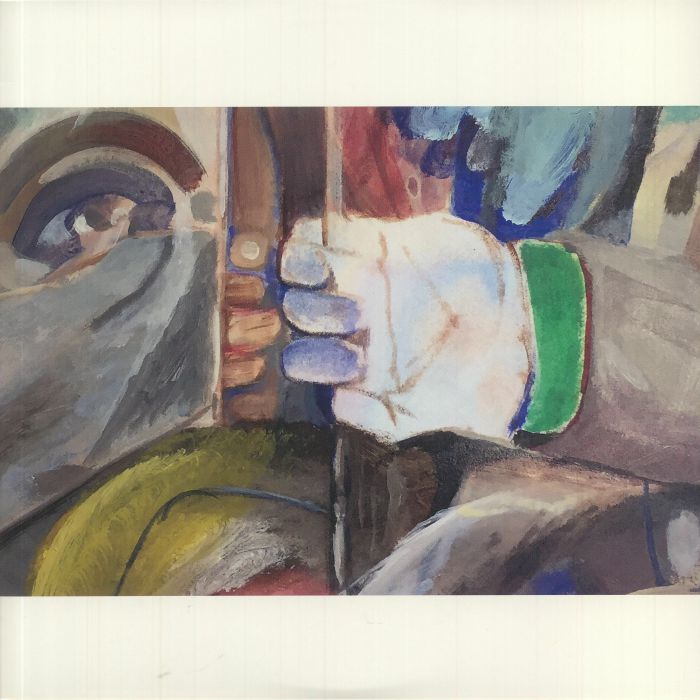
True to the name of this album’s lead track, Mark Broom is one of the UK’s leading house and techno ‘movers’, having held down his bosslike standing since his first release in 1992, and his first DJ appearance in the late ‘80s. He’s toured the world, has worked with Robert Hood and Warp Records, has branched out into side projects like The Fear Ratio, and has even been remixed by Autechre. Such a wealth of experience and positive reinforcement might at first motivate your average artist to succumb to album format time and time again, but Broom recognises the strength of the EP, and has only put out one album of original productions every decade.
‘Funfzig’ is Broom’s third LP, its title being the German word for ‘fifty’, Broom’s age. It’s only fitting that he should assert it. On mere mention of his name, ‘experience’ is one of the first connotations that springs to mind. And Broom here returns to Radio Slave’s Rekids imprint, the label responsible for the tongue-in-cheek slang term for wax that we now all know and love.
The music is just as playful, with Broom abandoning the darker, steel-capped minimal edge heard from his noughties material, for a scratchier house and even a speed garage focus – openers ‘Mover’ and ‘We Gotta Dance’ set this tone. But for all intents and purposes, this could be an album of lost rarities, with Broom demonstrating a mastery over retroized acid production and oddball stylistic choices. This centres on instrumental dub, with a dub tune (‘Stark’, ‘Dub Me Good’, ‘Lovers Rock’) appearing almost once every three tracks. We can’t believe it’s not techno; these are the kind of dub units that ‘eclectic techno DJs’ roll their eyes to the backs of their heads over. Imagine the many versions of Prince Jammys, but if his tunes have an irreplicable human touch, then Broom’s take on the style is more implant-laden and cyborg-like, with more white noise risers and more exaggerated digi-delay.
Elsewhere, Broom’s more well-trodden trademarks make themselves heard, with ‘EFX’ having that blippy acid sway to it, and ‘Memories’ channelling that rapturous string shimmer nailed earlier by UR. A triumphant return.
JIJ
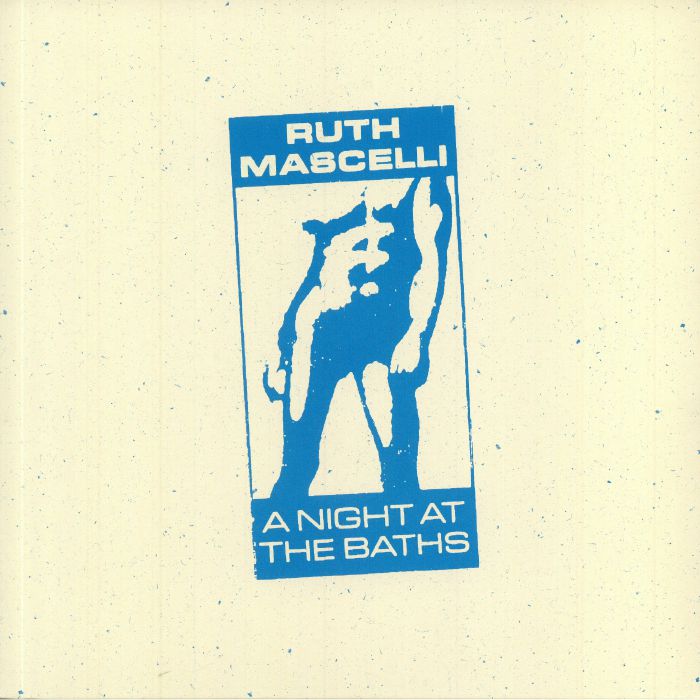
Ruth Mascelli – A Night At The Baths (Disciples)
The dusky ambience Ruth Mascelli weaves on their debut album A Night At The Baths is seductive in the subtlest of ways. The energy conjured up by the combination of linear, understated grooves and wraith-like melodic content sits somewhere liminal, too forthright for the chill out room, but far too strung out and beautiful for the peak time. In a similar fashion to DJ Sprinkles, they create a dreamers dance music which ascends in the gentlest of ways, especially on the three-strong opening run of ‘Sauna’, ‘Petri Dish’ and ‘One For The Voyeurs’.
It’s not all smoky rollers though, and it would be strange if it was. Mascelli’s other musical commitments include Special Interest, a queer punk-industrial outfit who have been recording and touring for a few years now. The affinity for noise is apparent even in the deeper moments of this album, but ‘Libidinal Surplus’ pushes further towards the kind of club music you might more readily associate with an industrial artist – pealing acid techno caked in distortion and sheets of discordant synth.
Still, this other feeling persists – a certain disassociative quality which holds true to the conceptual backdrop to the record, Mascelli’s personal audio diary of the bathhouses, dark rooms and gay clubs they frequented while on tour with Special Interest. Paying tribute to the rudimentary tannoy speaker systems playing music in these spaces in lieu of a proper soundsystem, Mascelli mentions, “the sound of a degraded pop song several rooms away getting lost amidst the chorus of heavy breathing.” It’s a jump-off point which can work in the context of more fractured, downtempo moments as much as the cracked euphoria of ‘Sunrise’. Rather than aping his inspiration in a brazen way, Mascelli draws on it as an abstract idea, and creates a world of myth and mystery that envelops you like dry ice under red lights.
OW
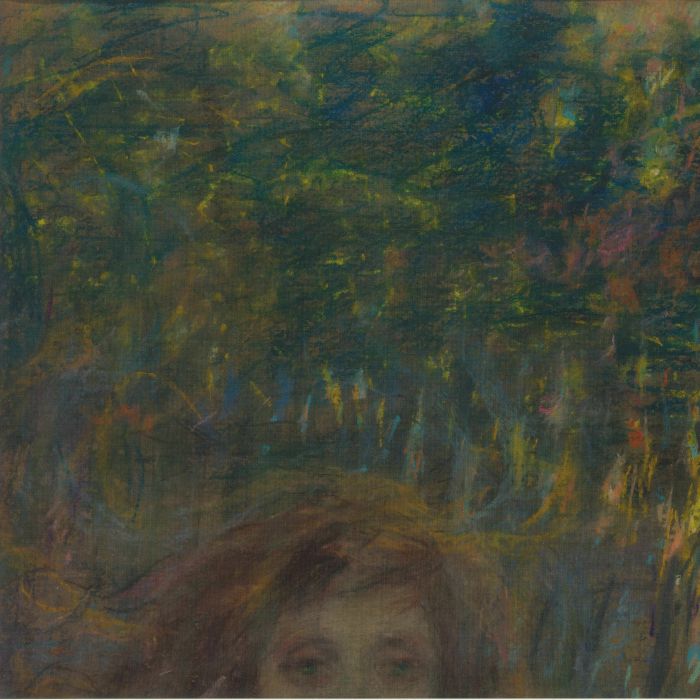
The House In The Woods – The Spectral Corridor (Ecstatic)
Martin Jenkins has a long and winding history in studio exploration which crosses paths with seminal works by The The’s Matt Johnson and Trevor Jackson, to name but a few. However, he managed to cultivate his own distinct artistic imprint with Pye Corner Audio, a pointedly retro exploration of library music and spooky synthwave which continues to draw listeners into a world of haunted dancefloors and abandoned laboratories. If Pye Corner Audio feels evocative of the night, Jenkins’ The House In The Woods comes on like an extended paean to the shroud of darkness, with the shapes and footholds of civilisation shorn away to plunge into abyssal depths.
The House In The Woods first surfaced alongside Coppice Halifax on The Deep Tapes, but crept into its own zone with 2013’s Bucolica. At a time when Pye Corner Audio was just finding form, the record served as an ominous, shadowy companion. Bar a scattered selection of appearances and self-released miscellany, this new album arrives eight years later to further Jenkins’ exploration of dark ambience, finding a sympathetic mooring on the ever-adventurous Ecstatic.
The Spectral Corridor is a slow-burning record populated with elongated mood pieces, invariably resting on a bed of drone but sometimes given relief by pronounced synth passages. ‘Spectral Corridor 4’ takes on a cinematic veneer as its lead line conjures up a thousand noirish VHS memories, while ‘Spectral Corridor 1’ sports an arpeggio which wouldn’t be out of place in the Pye Corner Audio universe. But it’s the more subtle moments where the record truly excels – the billowing clouds passing through ‘Spectral Corridor Part 2’, the creeping, organ-hum daybreak of ‘Grounded’. Jenkins’ accomplished touch is noticeable in the sumptuous quality of the sound, elevating these sustained tones and textures and exuding a welcome warmth amidst the seductive gloom of the composition.
OW
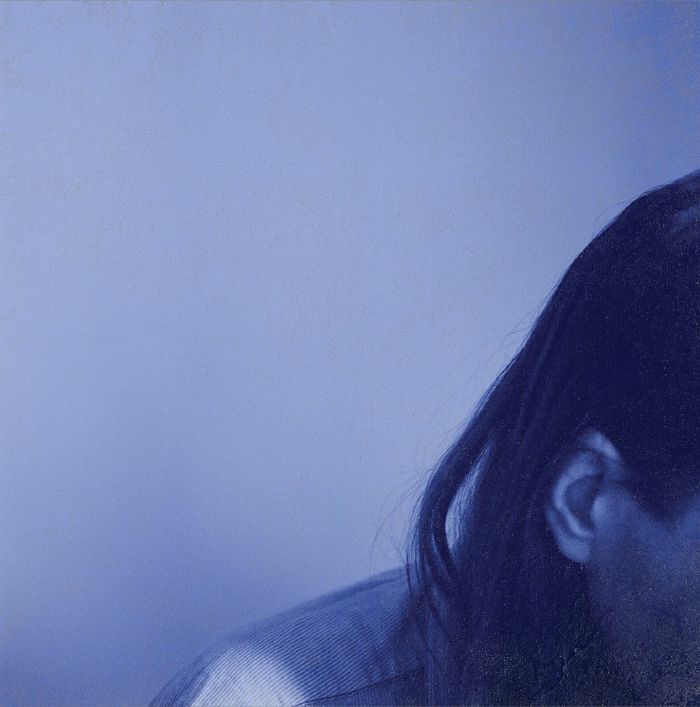
John Murry – The Stars Are God’s Bullet Holes (Submarine Cat)
The title alone suggests that the Mississippi raised singer-songwriter John Murry’s third long-player is perhaps testament to a life less ordinary or if not, then for sure a chronicle of something very well lived in.
Now based in Ireland for best part of a decade, and via recordings at legendary Monmouth outpost Rockfield Studio at the hands of John Parish (best known for his work with PJ Harvey and more recently, This is the Kit and Dry Cleaning), Murry has buried his soul deep to produce an honest document of unsparing intimacy and twisted beauty.
Where this record’s predecessors were soaked in the ruminations of narcotics recovery or the forlornness of a failed marriage, this time a jubilancy has emerged, and we find a record doused in a wild wit, albeit at times the humour is bible black.
On album opener and lead single ‘Oscar Wilde (came here to make fun of you)’ we hear Murry sing, “Of course I’d die for you,” before nonchalantly adding, “you’d watch me, wouldn’t you?”
‘Perfume and Decay’ segues into the title track – both numbers providing a neat pace and establishing the album’s groove. A swinging beat and the fuzzy chicken rhythms of the deep south reference Billy Gibbons and Tom Petty ensuring that over and above any lyrical dependency the vibe alone is enough to keep one’s ears keen.
But Murry is a poet – a literary man and by-the-way adopted grandson of William Faulkner – it is the lyrical content that is the centrefold here. Both brutal and beautiful it delivers a bounty of tone that hits home as much as any fevered guitar lick does.
The Stars are God’s Bullet Holes is not only a candid and thoughtful review of the well furrowed streets of a thinking man’s life but also a joyous celebration of survival, new starts and fresh horizons.
APC
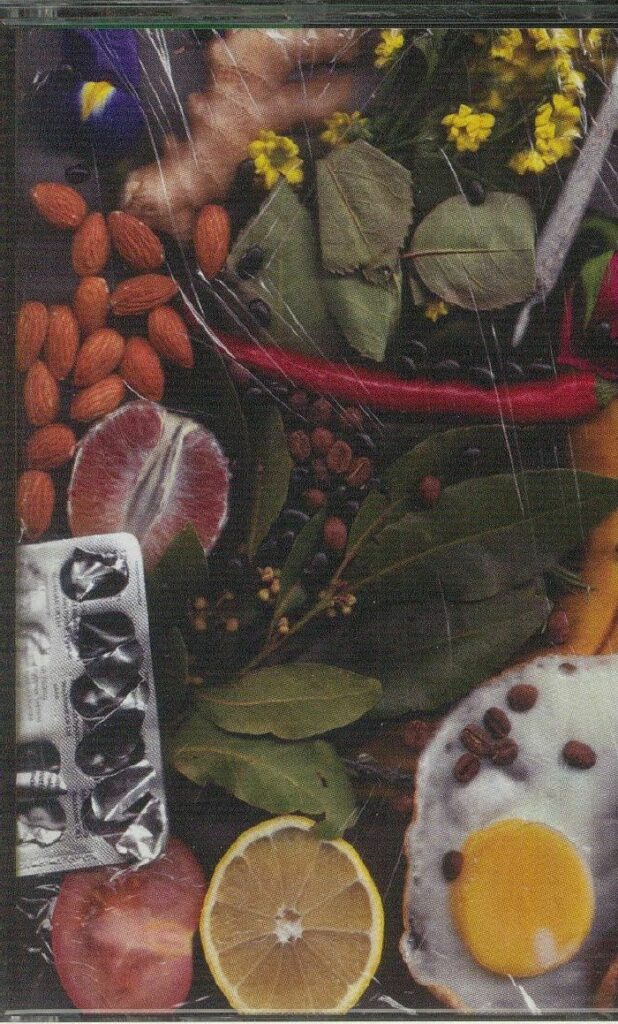
Beautiful Lunches – Slumgullion (Shadow World Archive)
The makers of ‘Slumgullion’, Duffin and Sam Pillay (together known as Beautiful Lunches), have boldly dared us to “play this and not feel it”. Who would we be not to take them up on their challenge?
Made in Leeds and Manchester between 2019 and 2020, this album is the product of toying with genre tropes via tricky hardware samplerage, with a view to unearthing personal trauma and its intersection with daily life as a bummy 20-something. Like slumgullion itself, it plays like an improvised meal made on a rainy day, when you’re in need of something functional and quick.
Like the sonic equivalent to a Samuel Beckett play, or an overfilled still life drawing, the objects Beautiful Lunches allude to – Paracetamol, almonds, fried eggs – overwhelm us, but nevertheless give the project meaning. Tape-hued, groggy-eyed mornings after is the vibe, with ‘Clackamas’ straddling the dubby and grooving mood of dancing around half-arsedly in a kitchen on a muggy day, trying to make out today’s NTS broadcast through a laptop speaker that would warrant repairing, were you not such a miser.
Whether we still are or once were, this album makes us feel like a mildly depressed postgrad trying to pass as ‘healthy’, lethargically preparing food that could be better. ‘It’s Hard To Get By ’ has a sort of reflective sound in it that jingles and jangles about, and which could evoke anything from clinking kitchenware to rattling XLRs at a divey gig. ‘Cem’, with its shuffling, out-of-time bass tones and stereo impacts, could represent a post-coffee panic attack. Meanwhile, the final four tracks seem to represent a calm after a storm. The modal ambience of ‘Slumgullion Earthflow’ sounds like a slow dance with your SO, after a fight. Meanwhile, the eight-minute, lilting, saxophoney ‘Ruckenmedallions’ is the most harmonious track, but in its lo-fi, garage-bound quality, still sounds like a ballad that never was.
JIJ

Sleepy Rich – Solaris (Ilian Tape)
As Ilian Tape continues to grow into a many-limbed label with a kaleidoscopic range, their fledgling Beat Series returns with another salvo from Alexis Boettcher. This time around, Boettcher has switched guises from Packed Rich to Sleepy Rich, maintaining a thread from his previous mini-LP released earlier this year. As a promising young beatsmith from Munich, Boettcher’s second appearance on Ilian Tape feels like a family affair – clearly this is an artist the Zenker Brothers are interested in nurturing, and it’s not hard to see why. In the ill-defined beat scene, there’s a lot of scope for a producer’s personality to come through in their choice of samples, their approach to groove, and the tools they use to accent the crooked drums. Boettcher’s personality pours forth from Solaris, stored in a sound fluid enough to slip right past the conscious mind and get straight into your inner headspace, but with a tactile quality which is easy to get a handle on as well.
The synths on Solaris are a huge part of the charm – ‘Hyperspace’ in particular soars on wave upon wave of arpeggios, reaching starwards with a boost from a quintessential neo soul chord progression. With the guitar licks, meandering jazzy arrangement and low down funk, it’s a cocktail which feels like it should be played out live by an ensemble. ‘Solaris’, on the other hand, turns the other way, and revels in synthesis as the main weapon. The scale and shape of the lead line which looms throughout the track is a wonder to behold, sculpted with the kind of sound design which renders a waveform as a living, breathing creature. It’s this level of production prowess which marks Boettcher’s beats out as something special in a densely populated playing field.
OW

For all its bubbling, organic qualities, the music of Osaka’s 7FO has never really sounded of this earth. Across a run of albums for Rvng Intl. and EM Records, a delicate sound world has emerged where playful new age melodies and globular sound design flutter around each other in curious harmony, but there has always remained a certain gallery ambience to these creations, as though they were 3D sculptures cast in glass. Whether viewed from the front as an exercise in refined sound design and emotionally restorative melodies, or from the side as an environmental soundtrack, or indeed as a purist art piece, the emergent producer’s creations hover in a kind of suspended animation.
On this new record for conatala, 7FO took a different approach which came in direct response to the pandemic and the lack of public attention on his craft. It’s immediately apparent there’s a more purely hardware-oriented approach at work on the record, with the crystal-clear peal of 80s and 90s Kawai synths cutting through the mix with precision. Those particular tools lend themselves to 7FO’s approach, which sounds stripped back without the ecological accoutrements of his previous records. Instead, the compositional aspect of his music takes precedence – well, that, and his ability to add weight and poise to even the most plastic of rompler waveforms, and make yet another beautifully rendered record.
OW
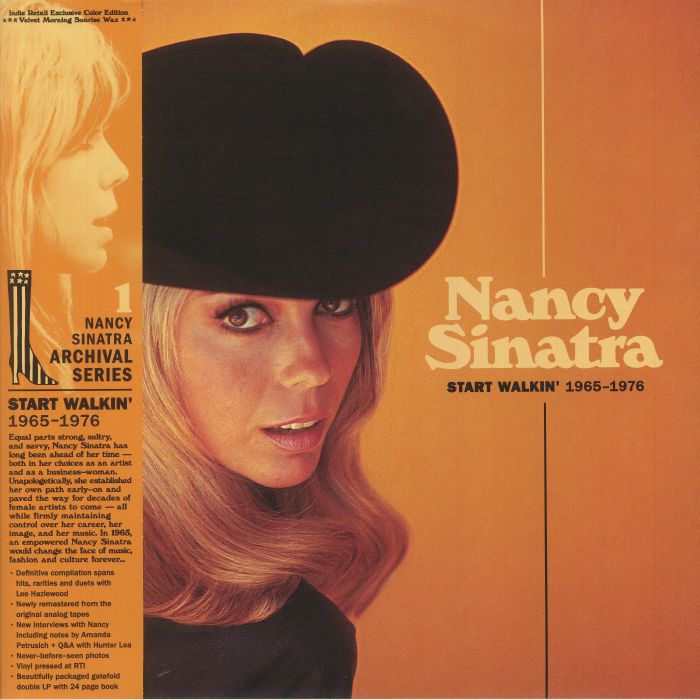
Nancy Sinatra – Start Walking: 1965-1976 (remastered) (Light In The Attic)
Nancy Sinatra, the eldest daughter of Frank Sinatra, had an illustrious career of her own, whose influence can be heard everywhere from Angel Olsen to Lana Del Rey. This new compilation covers Sinatra’s most productive years with her primary collaborator Lee Hazlewood and relates a narrative arc that may be familiar to those who’ve long considered the Chairman of the Board’s eldest daughter to be one of the coolest women to walk the Earth.
Indeed, by leading with ‘Bang Bang’ and closing with little-heard marvels made after the hits ran out, Start Walkin’ presents a wider, richer view of a singer who may finally be regarded as more. Just as it signified for Uma Thurman’s assassin when Tarantino used it in 2003’s Kill Bill Vol 1, ‘Bang Bang’ is about earning some payback for Sinatra.
The genres vary but it’s fair to say the primary focus is country, and with her signature sultry vocals, this compilation doesn’t disappoint in showcasing her talent. Nancy Sinatra’s catalogue has long been deserving of the bells-and-whistles treatment and it finally comes to pass with a series of highly desirable reissues from Light In The Attic.
AY

J Foerster & N Kramer – Habitat (Leaving Records)
Matthewdavid’s Leaving Records is always a trusted destination for stand-out ambient music. In many releases on the label, it feels like an intersection between the spiritual and experimental is achieved, where new age devotion and traditional instrumentation carry through in simultaneously current and timeless music. Whether it’s the tender sax and bass improv of Sam Gendel & Sam Wilkes or Nailah Hunter’s illustrious harp sweeps, Leaving releases invariably offer some kind of nourishment for the soul. That’s absolutely the case on Habitat, a collaboration between composer Niklas Kramer and percussionist Joda Foerster.
The eight pieces Foerster and Kramer offer were reportedly inspired by the drawings of Italian architect Ettore Sottsass, each sculpted to represent a room in an imaginary building. While there’s certainly angles and lines in the sonic spectrum to denote a man-made space, the overall impression on Habitat feels more organic. ‘Air Flows’ is populated with insectoid whirrs and pings – at the very least the windows of this particular room have been flung open to let the natural world in. Lilting vibes and gentle synth pillows give ‘Botanique’ a formless quality, while ‘Four Glass Steps’ lingers in a liminal space like drops of ink in still, clear water. The shapes and movement you detect in the music aren’t as important as the overall feeling though, and in the consistent harmonic balance of the album, you’re sure to feel the same rejuvenation that always arises from a Leaving release.
OW
This week’s reviewers: Oli Warwick Jude Iago James, AP Childs, Ava Tusuf, Jude Iago James.